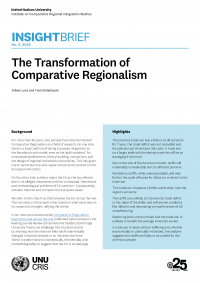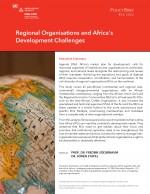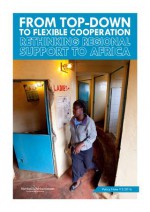The Transformation of Comparative Regionalism

This Brief illustrates that Comparative Regionalism has recently undergone three ‘silent’ transformations which have moved it beyond the struggle between EU-centric and EU-critical scholarship.
Conceptually, scholars disaggregate regionalism into specific components, rendering systematic comparison more tractable and less case-centric.
Theoretically, scholars develop frameworks that build on general social science theories and actively seek to overcome EU-centrism (‘integration snobbery’) as well as exaggerated EU-criticism (‘area centricity’).
Methodologically, scholars use more rigorous comparative designs and a broader range of data.
The benefit of the field’s maturing lies in the intellectual energy generated from being ‘freed-up’ and from the new links formed with other sub-fields.
The price of this transformation is three-fold: the risk of covert as opposed to overt EU-centrism, increased barriers to entry and the costs associated with cross-regional data collection, and finally, the risk of ‘gatekeeping’ which threatens the field’s pluralism and diversity.


